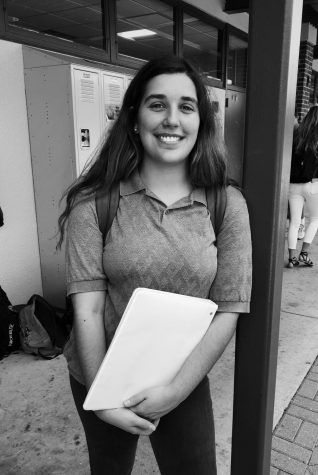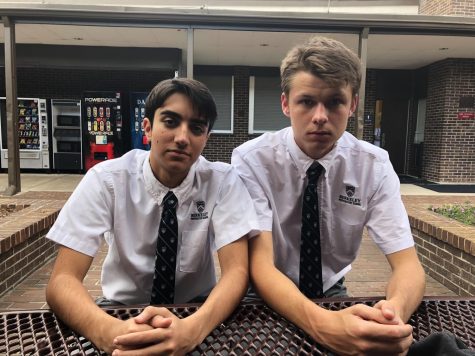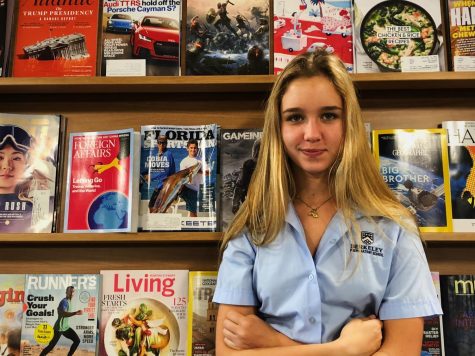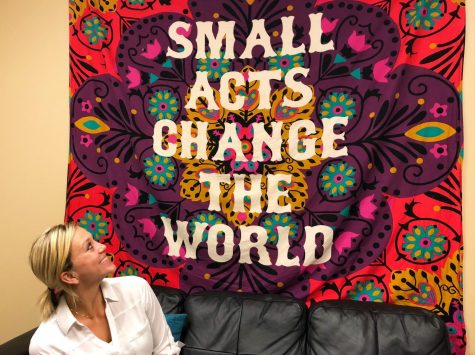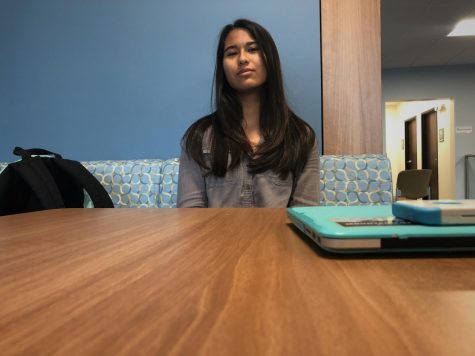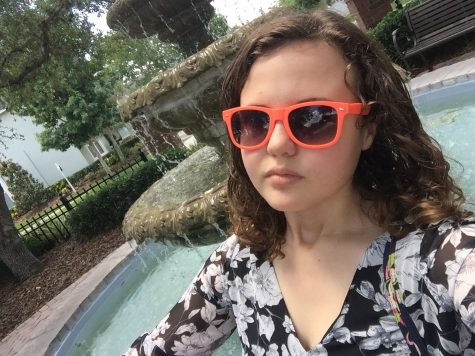After Parkland
A look at how Upper Division students and faculty feel following the tragedy at Marjory Stoneman Douglas High School.
March 13, 2018
On February 14th, 2018, the students at Marjory Stoneman Douglas High School in Parkland, Florida experienced an unfathomable tragedy: gunman Nikolas Cruz killed 17 people and injured 14, using a semi-automatic rifle. The Berkeley community was disturbed that such a horrific event could occur at any school, let alone at one less than four hours away. On February 26th and March 5th, Upper Division students and faculty met in the Doster Study Hall to discuss how the Berkeley community would like to respond to the tragedy in Parkland. The Fanfare spoke with a number of Berkeley students and faculty members about their thoughts following the shooting.
Daniel Hayes, English Department
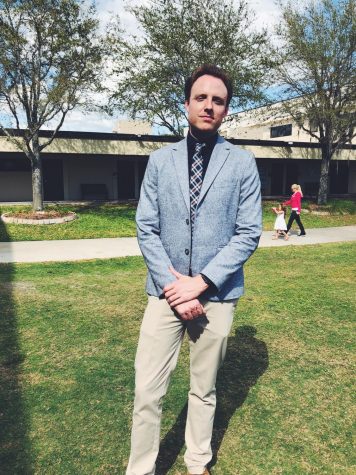
Is there anything that you would like to write to the student survivors of Marjory Stoneman Douglas High School?
If you feel crazy, you’re not; the world is. Few people know what you’ve been through, and I pray it stays that way. You deserve better; I know it, you know it, we all know it. You deserve smiles, not bullets. Our duty is to arm you with literature, not firearms. Whether you’re feeling anger, fear, angst, depression, you’re not wrong. I think of you often, and I hope that someday—now or tomorrow or 20 years from now—you are able to use this experience to make the world a little less crazy.
Melissa Miller ’19
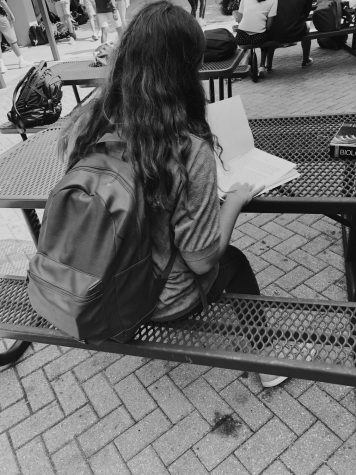
(1/3) What was your initial reaction when you heard about the shooting?
I obviously recognized the name of the school….I immediately started texting all of my friends. One of my camp group chats had already blown up… I went to Israel [with] lot of people from Parkland, and they all go to [Stoneman Douglas High School] too, and not just kids my age that I’m friends with, but kids that are above my age, below. Especially ninth graders: my brothers’ friends…It was very surreal. It was like, “I’m sure that my friends are fine. Right?” Three of my friends were shot, but a lot of my friends’ best friends or friends, even just peers, had been shot. That was also really weird. …Two of the three people that were shot that I’m friends with died…One of them is still in the ICU.
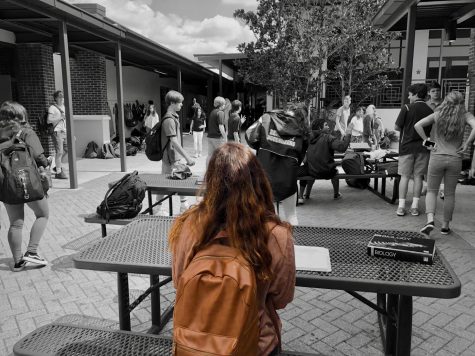
(2/3) …I think what’s really important, and to realize, is that [the shooting in Parkland] doesn’t really affect that many people closely–I mean, in the grander scheme of how many people are in the United States or even the world. But I mean, it does affect a lot of people. Even if it just affects one person, right? It’s something. You can be mad at the person who did it. Of course, you should be mad at them. But at the same time, there’s other things you can target your anger to.
Photo by Isabella Schlact
(3/3) I think it’s really important to realize that lives are at stake, and you need to value other people’s lives over your precious weapons….I think that sometimes, you just have to realize what comes first…It’s not like gun control is banning guns. Gun control is controlling who gets a gun.
Curran Seth ’20 and Bryson Forsmans ’20
Photo by Isabella Schlact
How did the news of the shooting at Stoneman Douglas High School affect you when you heard about it?
(Curran) I think that these things, you know, these school shootings, they sort of seem like myths or just stories until they’re close enough to home….It didn’t happen to me, it didn’t happen to us, but the fact that it happened so close, it wakes people up. It’s a reality. People are dying.
(Bryson) You don’t really think it’s going to happen to you. I’m sure the kids at [Stoneman Douglas High School] last week didn’t think it was going to happen to them.
(Curran) I mean, it’s unimaginable. I can’t even fathom something like that.
(Bryson) We’re really fortunate to go to a school that has good security and teachers who really care about us.
What do you think about the action that students across the country are taking following the tragedy in Parkland?
(Curran)…When tragedy strikes, it’s not a reason to exploit it, but it is a reason to talk about it. And there’s no reason that we shouldn’t be referencing this issue. There’s no reason that we shouldn’t be taking action. Because people are dying. We can’t just sit by and watch it happen… It’s not a people problem. People aren’t born evil. This is the issue with the weapons themselves.
Zoe Bandes ’21
Photo by Isabella Schlact
My best friend’s friend died. It was shocking…I never really thought about these things until it became personal…There needs to be a change that can happen. Whether it’s more gun control, or some policy for guns. I’m not saying we need to have full gun control. I’m saying there should be policies for vetting. There needs to be change, because there’s been, like, 18 [school shootings] since [the start of] 2018 [Note: There have only been 14 school shootings in 2018], which is like, 3 months, 2 months.That’s kind of insane.
What do you think about the students from Stoneman Douglas High School that are now taking action?
My friends [from Stoneman Douglas High School]–they marched to Tallahassee…They’re trying to make a change. It’s not really happening, but I don’t know: the power of teenagers is changing, which is good. It’s cool to have my friends take part in it.
Is there anything you would want to say to the people who might not take this event seriously?
Look up videos of the actual [shooting], because people recorded from their classrooms the shots being fired. I know that most people just don’t feel it, because I didn’t feel it either. And it’s hard to feel something that doesn’t really happen to you. But if Berkeley does do a march…it would be heard more…I feel like we need to remember each of the people who died, and we need to talk about each of them. Because they were people like us, who went to school, and we never saw them again. It’s just devastating.
Abby Glisson, Upper Division Counselor
Photo by Isabella Schlact
I think for the most part, it’s just sad…sadness and grief, and not knowing how to really process and digest what’s happened. And that’s pretty normal for anybody, not just teenagers and adults too, who are just trying to, again, digest what has happened and to know where to sit with it….I think there’s a lot of students who want to continue to talk about what’s going on and who are still sad and feel like they need to express themselves and express something, right?….We have such empathetic students and driven and motivated students. I believe something good will come out of this…I [am] always optimistic and hopeful that there will be kindness spread and more compassion for one another…I’m proud of [Upper Division students] for wanting to speak. For wanting to do something, whatever that looks like. And to not have fear. To just speak up.
Chris Marshall, Director of Upper Division Theatre
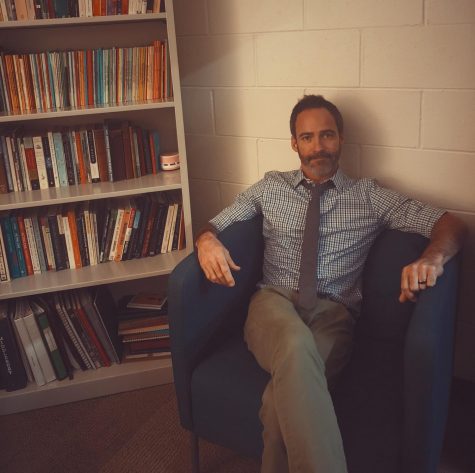
(1/2) I directed a play….called “With Their Eyes,” and as the title suggests, it was really just a telling of the events from the eyes of students who were literally blocks from Ground Zero…What this piece of art did in a time that was so, so emotional, is it removed the emotion from it and it was just a retelling of what happened. And so, even in the directing of it and the performing of it, we were very careful to not make it like a “sad event.” It was just, it was like a witness of what had occurred.
…[In theatre], we don’t necessarily want to bang the audience over the head with a message, but I would like to see this issue dramatized in a way that allows people to see the immediacy of it and that it is going on and it’s scary to talk about. It’s like one of those things where you almost don’t want to talk about it because it might happen again, but I think it needs to be. It needs to be done…It was several months before the first play was written about 9/11. Because people were too scared to write on it. But I think now, people are mobilizing, and I’d like to see some artists respond in that way.
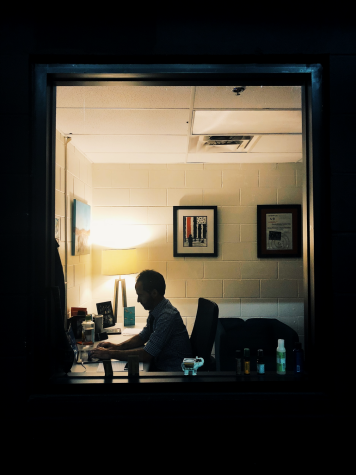
(2/2) What do you think about how teenagers are taking action after this event?
I think it’s great. I think it’s what we need. I think that the government is run by people, men and women, who are much older than you [students], and yet, the laws are affecting us: teachers and students…Whether that’s actually going to make a change or not, I don’t know…I hope that, you know, they’re not seen as kids. I hope that they’re seen as people who are on the front lines of what’s occurring.
Is there anything that you would want to say to the students or families in Parkland?
I mean, to the families, I can’t even imagine. I don’t know what I’d say…Kids aren’t supposed to die before their parents. And I just don’t understand–I wouldn’t understand…I’ve been through grief in my life, but nothing like that…As far as the kids who are speaking up: keep going. Keep talking. Don’t let it die when it falls out of the news cycle.
Kayla McLoone ’20
Photo by Isabella Schlact
Honestly, when I first heard about what happened, the shooting, I was sad, but I was also frustrated. I think it was a mix of both, the emotion I felt… I was so sad to know that there were children and teachers and maybe even police officers who died because someone felt so much pain that they thought they had to inflict it on others. Or they felt so much hatred that they couldn’t see how morally wrong it was to go around killing people. And I also remember thinking, “Not again. Really?” Because there has just been this procession of shootings, not only school shootings, but just public shootings in general by people who are just bent on causing harm, and it made me frustrated and angry….We can argue all day about what the solution is, how it should be implemented, how–to what extent it should be implemented. But then again, these are people’s lives, and these are children’s lives. I mean, I’m a child and I understand the gravity of another child dying. Adults should understand that even more so….I think that we all need to recognize that there is an issue. I think for the most part, we do agree that there is an issue, and it needs to be solved. And it needs to be solved, you know, not “We should talk about it. We should discuss more options.” No! We know the options. And now, we need to figure out what we’re going to do to make this happen less or, hopefully, to make this happen not at all. Because, that part is not really political.
If you would like to speak with the Upper Division Counselor Abby Glisson, you can email her at:
[email protected] or go see her in her office.


